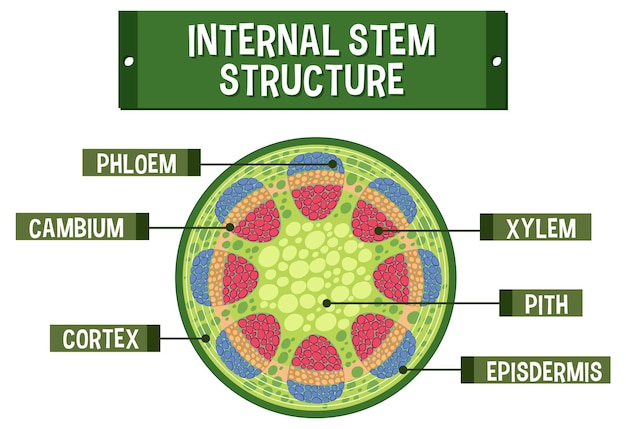Fascinating Facts About Plant Cells

Plant cells have a rigid cell wall made of cellulose.
Chloroplasts are the organelles in plant cells responsible for photosynthesis.
Plant cells have a large central vacuole that stores water and nutrients.
The nucleus of a plant cell carries the cell’s genetic information.
Mitochondria in plant cells produce energy through cellular respiration.
Plant cells have specialized structures called plasmodesmata that allow for cell communication.
The endoplasmic reticulum in plant cells plays a crucial role in protein synthesis and lipid metabolism.
Golgi apparatus in plant cells processes and transports proteins and lipids.
Plant cells have a wide variety of organelles, including peroxisomes, lysosomes, and microbodies.
The cytoplasm of a plant cell contains various organelles suspended in a gel-like substance.
Plant cells can differentiate and specialize into various cell types, such as root cells, leaf cells, and stem cells.
Plant cells have the ability to undergo cell division, allowing for growth and development.
Plant cells can regenerate and repair damaged tissues, unlike animal cells.
Plant cells contain plastids, which are responsible for storing pigments, such as chlorophyll.
The cell membrane of a plant cell regulates the movement of substances in and out of the cell.
Plant cells communicate with each other through chemical signals, allowing for coordinated growth and response to stimuli.
Fascinating Facts About Plant Cells part 2
Plant cells have a unique ability to generate energy from sunlight through photosynthesis.
Plant cells have a complex network of cytoskeletal filaments that provide structural support.
Plant cells contain unique organelles called microtubules, which are involved in cell division and intracellular transport.
Plant cells can adapt to changing environmental conditions, such as drought or high salinity.
Plant cells have a unique reproductive system, involving pollen and ovules.
Plant cells undergo a process called cell elongation, allowing for growth in height.
Plants are autotrophic organisms, meaning they can produce their own food through photosynthesis.
Plant cells have a large surface area to volume ratio, allowing for efficient nutrient absorption.
Plant cells play a crucial role in carbon dioxide fixation and oxygen production, contributing to the Earth’s atmosphere.
The cell wall of plant cells provides protection against physical damage and pathogens.
Plant cells have a high tolerance for osmotic stress, allowing them to survive in different water conditions.
Plant cells have the ability to respond to gravity, allowing them to grow upright.
Plant cells produce hormones that regulate growth and development.
Plant cells have a remarkable ability to regenerate damaged tissues, allowing for vegetative propagation.
Plant cells can form symbiotic relationships with other organisms, such as mycorrhizal fungi.
Plant cells have the ability to produce secondary metabolites with medicinal properties.
Plant cells have evolved complex mechanisms to defend against herbivory and pathogen attacks.
Plant cells can synthesize their own DNA, RNA, and proteins.
Plant cells have a unique structure called the plasmodesmata, allowing for direct communication between adjacent cells.
Plant cells can undergo programmed cell death, a process crucial for development and tissue remodeling.
Plant cells have the ability to perceive and respond to light, allowing for phototropism and photoperiodism.
Plant cells have a remarkable ability to heal wounds through cell proliferation and tissue regeneration.
Plant cells can enter a state of dormancy, allowing them to survive harsh environmental conditions.
Plant cells can communicate through electrical signals, similar to the nervous system in animals.
Plant cells have a unique ability to synthesize complex carbohydrates, such as cellulose and starch.
Plant cells can store excess energy in the form of oils and starch granules.
Plant cells have a unique reproductive system, involving gametophytes and sporophytes.
Plant cells can respond to mechanical stimuli, such as touch or wind, through a process called thigmotropism.
Plant cells have a unique ability to differentiate into various cell types during embryonic development.

